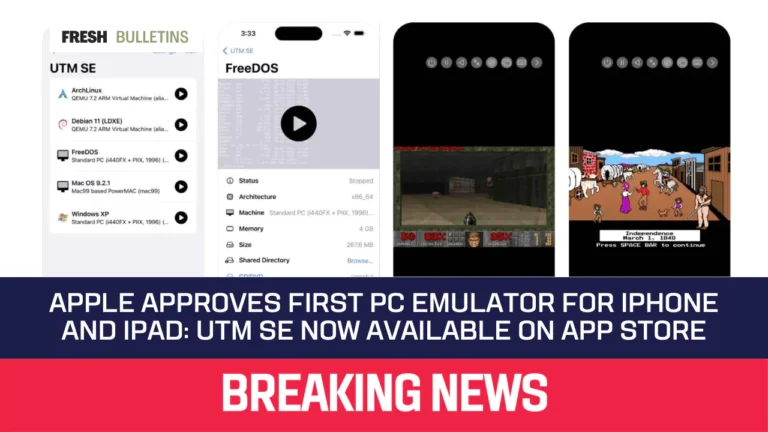Microsoft’s New AI-Powered PCs Face Challenges with Popular Games
Microsoft has introduced new AI-powered PCs called Copilot+ PCs. These computers perform well for many tasks, especially those that need artificial intelligence. However, they struggle to run popular video games, according to a report from The Wall Street Journal.
What’s Inside the Copilot+ PCs?
The Copilot+ PCs use a special type of chip called an Arm-based Qualcomm Snapdragon chip. This chip combines the CPU, GPU, and a Neural Processing Unit. Each part handles different tasks. The CPU runs programs, the GPU helps with graphics, and the Neural Processing Unit focuses on AI. This design helps the PCs work quickly and saves battery power. While computer makers aim to improve productivity and battery life, they face challenges when it comes to gaming.
The Gaming Problem
Many popular PC games were made for a different type of chip architecture called x86. These games have specific requirements that do not work well with the Arm architecture. Because of this, when players try to run these games on a Copilot+ PC, they often encounter issues. Research shows that only half of 1,300 tested PC games ran without problems. The issues included bugs, glitches, and launching difficulties.
Some games have additional problems due to their security systems. Games like Fortnite and League of Legends use anti-cheating software. This software does not easily adapt to the new architecture, leading to further challenges in running these titles.
The Role of Prism
To help run x86 games on Arm-based Windows machines, Microsoft created special software called Prism. This software acts like Apple’s Rosetta 2, which allows applications to work on different architectures. Sadly, Prism has not performed well. Many users report that programs like Premiere Pro and Blender do not work smoothly. Popular games such as Shadows of the Tomb Raider and Destiny 2 struggle to launch at all.
A significant problem lies in the graphical requirements of many games. Microsoft has stated that games needing high-quality graphics may not play well on these PCs. It means players who want to enjoy graphic-heavy games might need to find another computer.
Gaming Community Reaction
The gaming community has reacted strongly to the performance of Copilot+ PCs. Many gamers expect computers to run both productivity tasks and games. The delay in performance has caused frustration among players. They want to enjoy their favorite games without dealing with glitches or launch issues.
Most gamers use laptops to play games along with completing schoolwork or work tasks. When they buy a PC, they hope it can handle both activities effectively. The introduction of the Copilot+ PCs has raised questions about whether Microsoft can provide a good gaming experience on this new platform, or if they should stick to traditional PCs for gaming.
Solutions for Gamers
Players looking for a smooth gaming experience may need to consider a few options. One option includes waiting for game developers to create versions of their games specifically for Arm architecture. Developers will likely focus on this as more Arm-based PCs enter the market. Since gaming studios want to reach as many players as possible, they may choose to adapt their games.
Another option is for gamers to choose a traditional x86 computer. These PCs have a long track record of successfully running popular games. Marketers often advertise gaming-focused computers that come equipped with powerful GPUs. These machines tend to provide a better experience for gamers regarding graphics and performance.
Microsoft’s Future Plans
Microsoft has expressed its commitment to improving gaming performance on the Copilot+ PCs. The company aims to improve the capabilities of Prism and expand compatibility with more games. However, challenges remain. The company has encouraged players who want high-performance gaming to consider alternative PCs. For Microsoft to truly succeed in the gaming market, overcoming these obstacles is vital.
Conclusion
In conclusion, Microsoft’s Copilot+ PCs showcase advanced AI technology and promise fast performance for various tasks. Still, gamers face issues when running popular titles. The switch from x86 architecture to Arm presents real problems. Games struggle with bugs, crashes, and security software that does not fit new systems.
While there are potential solutions in the future, including the improvement of Prism and updates from game developers, players should remain cautious. The transition to AI-powered Arm architecture may reshape productivity but has left gamers wanting more. As Microsoft learns from feedback and gaming experiences, time will tell if they can deliver the quality gaming experience that players desire.







